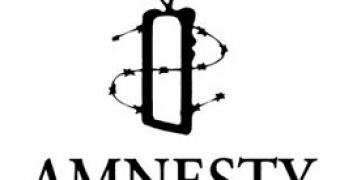The Saudi Arabian government has decided to block access to the main Amnesty International website after the human rights watchdog criticized a proposed anti-terror law that would limit people's ability to protest peacefully.
"A draft Saudi Arabian anti-terrorism law obtained by Amnesty International would allow the authorities to prosecute peaceful dissent as a terrorist crime," the organization announced on Sunday.
"The organisation has obtained copies of the Draft Penal Law for Terrorism Crimes and Financing of Terrorism, which would also allow extended detention without charge or trial," it added.
The law is being proposed during a time when countries in the Middle East and North Africa are swept by pro-democracy protests. The Saudi government has helped quell such protests earlier this year in Bahrain by sending its armed forces into the country.
The Saudi government responded harshly to Amnesty's accusations saying they have no foundation and criticizing the organization for not contacting any Saudi officials to ask for clarifications or comments.
It seems the government also used its Internet censorship powers to block the watchdog's website on Monday. Independent journalists and human rights activists located in Saudi Arabia confirmed their inability to access the site.
"Instead of attacking those raising concerns and attempting to block debate, the Saudi Arabian government should amend the draft law to ensure that it does not muzzle dissent and deny basic rights," commented Malcolm Smart, Amnesty International’s director for Middle East and North Africa.
It is this kind of actions that drive computer researchers and activists to develop censorship-evading tools in an attempt to help people in countries where Internet restrictions are enforced on a wide scale.
Researchers from Princeton University's Center for Information Technology Policy recently announced a new project to create an undetectable and unblockable proxy system designed to foil Internet censorship.

 14 DAY TRIAL //
14 DAY TRIAL //